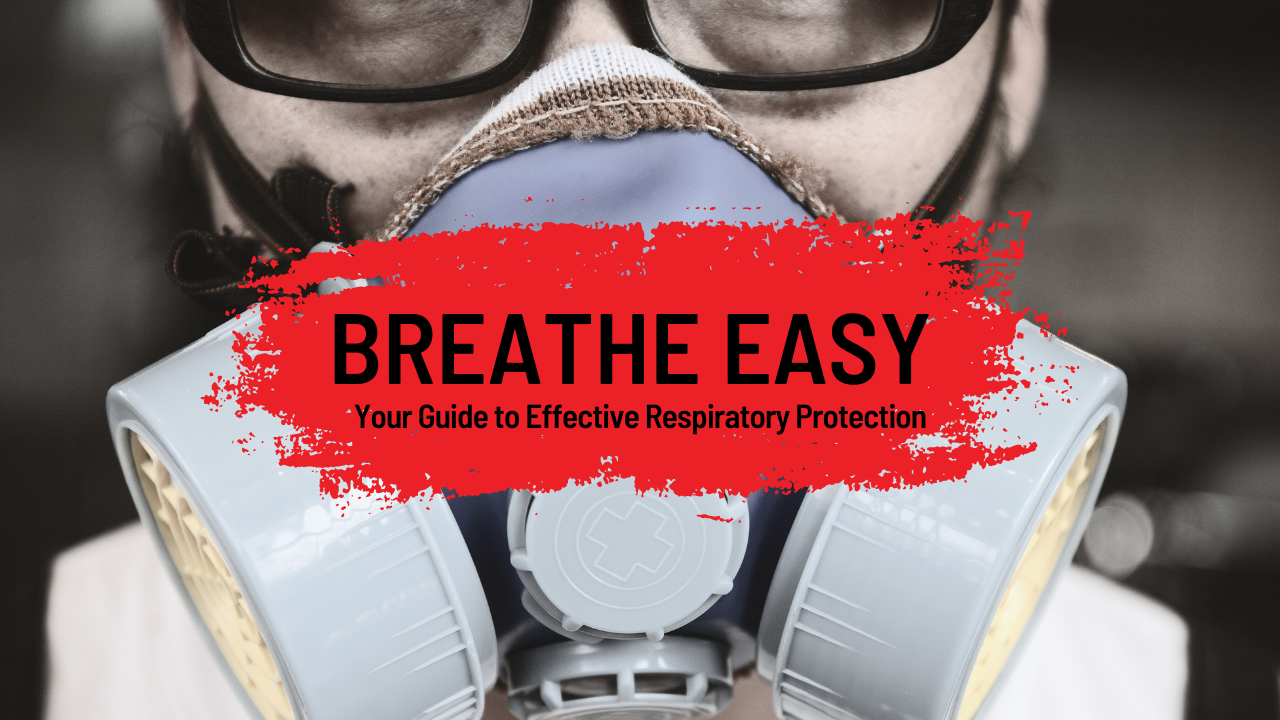
Respiratory Protection at Work: Choosing the Right Masks and Respirators
In today’s work environment, respiratory protection is more critical than ever. Whether you're dealing with dust, fumes, or hazardous chemicals, choosing the right mask or respirator is essential for your safety and health. At Ritz Safety, we are dedicated to providing top-quality respiratory protection and ensuring that you have the knowledge to use it properly. In this post, we’ll explore the different types of respirators available and highlight some of our recommended products. We'll also cover proper usage and compliance with safety regulations, linking to our training pages for additional resources.
Types of Respirators
When it comes to respiratory protection, one size does not fit all. The type of respirator you need depends on the specific hazards present in your work environment. Here are the primary types of respirators:
-
Disposable Masks
- N95 Respirators: These masks filter out at least 95% of airborne particles. They are ideal for protection against dust, fumes, and mists.
- Surgical Masks: Designed primarily to protect others from the wearer’s respiratory emissions, surgical masks are not as effective as N95 respirators at filtering out particles.
-
Reusable Respirators
- Half-Mask Respirators: These cover the nose and mouth and use replaceable filters or cartridges to protect against particulates and gases.
- Full-Face Respirators: Offering protection for the entire face, these respirators provide a higher level of safety against particulates, gases, and vapors.
-
Powered Air-Purifying Respirators (PAPRs)
- PAPRs use a battery-powered blower to pull air through filters or cartridges. They are suitable for environments with high concentrations of contaminants or for extended use.
-
Supplied-Air Respirators (SARs)
- SARs provide clean air from a separate source, such as an air tank or a remote air supply. They are ideal for environments with very high contaminant levels or where oxygen levels are low.
Recommended Respirators from Ritz Safety
Proper Usage and Compliance
Using the right respirator is only part of the equation. Ensuring proper fit and compliance with safety regulations is crucial for effective respiratory protection. Here are some key points to consider:
- Fit Testing: Make sure your respirator fits properly. An improper fit can significantly reduce its effectiveness. Ritz Safety offers training on proper fit testing to ensure maximum protection.
- Regular Maintenance: For reusable respirators, regular cleaning and maintenance are essential. Follow the manufacturer’s guidelines for cleaning and replacing filters or cartridges.
- Training: Proper usage of respiratory protection equipment is vital. Our training pages offer comprehensive guides on how to use and maintain your respirators correctly.
Conclusion
Choosing the right respiratory protection is vital for your safety at work. By understanding the different types of respirators and following proper usage guidelines, you can ensure that you and your team are well-protected. Visit Ritz Safety to explore our range of respirators and take advantage of our training resources to stay compliant with safety regulations.